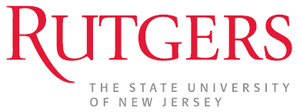 |
| English: The logo is from the http://identity.rutgers.edu/identity_manual.pdf website.Rutgers University (Photo credit: Wikipedia) |
http://chronicle.com/article/Rutgers-U-to-Investigate-Its/138417/?cid=pm&utm_source=pm&utm_medium=en
Here's what I had to say about outside investigators v. internal investigations in one of my recent newsletters:
An in-house investigator brings knowledge of the organization’s culture,
procedures and players to the inquiry.
An outsider faces a learning curve but adds an element of objectivity
that may otherwise be lacking. In
making the selection, issues to be considered include the possibility that the
investigator will one day be a witness in criminal and/or civil proceedings. Consequently, the company may not want
to give the assignment to outside labor counsel, who then might be disqualified
from representing the firm at trial. Note, too, that if the investigation is aimed at
avoiding vicarious corporate liability in a sex harassment case, the investigator’s
notes will be discoverable, even if that investigator is legal counsel.
The
Freeh Report demonstrates dramatically what can come out, when an external
investigator is given free rein.
The board and/or senior management which sets such an inquiry in motion
must be prepared to address both the findings and the publicity that
potentially may emerge. Clearly,
PSU officials kept matters close to their vests due to Sandusky’s prominence
and the potential impact of his conduct, if the accusations proved to be
accurate, upon the upon the university’s internationally acclaimed football
program.
But even when far less is at stake, confidentiality is almost always
desired.
This from the February 2013 issue of the Termination of Employment Bulletin:

No comments:
Post a Comment